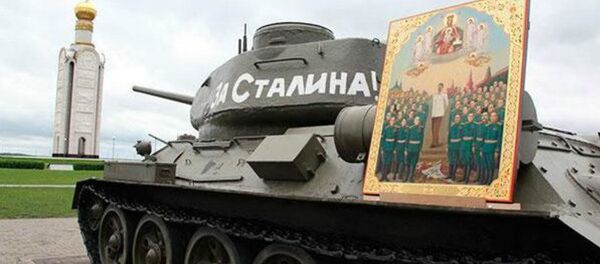One of the leading Western historians to write about Soviet-era repressions and the GULAG system, Robert Conquest died on Monday at the age of 98 of pneumonia.
Himself a former sympathizer of the Soviet Union in the 1930s and a member of the British Communist Party, Conquest later became disillusioned with his ideals, as he said, during his service as a British liaison officer in Bulgaria. Conquest went on to become one of the leading Cold War-era authors criticizing not only the Soviet system led by Joseph Stalin, but many Cold War-era "ideological" states as well.
Conquest's works, focused on the political background of repressions and personal accounts of its results, created the narrative of the Soviet system as one in which repression was a result of its political ideology, an important factor in East-West tensions at the time.
"He was very influential in that he immensely encouraged one side and was dismissed by the other, because people were in such entrenched positions. This meant that people accepted his facts; but they didn't accept his conclusions," writer Neal Ascherson told the Guardian in 2003.
A less-known Russian historian of Stalin-era repressions, Viktor Zemskov, died on July 21. Zemskov conducted extensive work on documenting the size of the Soviet Gulag system using archival data found that the actual scale of the system was far below Conquest's estimates. Conquest himself generally agreed with Zemskov's analysis after its publication, although he remains known for his historical works, published before the Soviet archives were opened.
Other than historical works, Conquest also engaged in writing fiction and poetry, both independently and as part of a British literary circle. He is survived by his wife Elizabeth Neece Wingate and three children.


